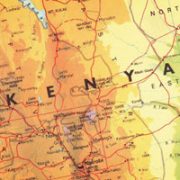Archive for month: June, 2016
South African VAT, Foreign Companies & Employees
/in Archived, News /by Marisa JacobsSouth Africa, unlike many other countries in the world, does not have specific place of supply rules. Rather, South African VAT is collected through the vendor registration method or the reverse charge mechanism for imported goods or services. In this article we will focus on the vendor registration method and the possible registration obligation for foreign companies consequent upon employees operating in South Africa.
The vendor registration method:
The vendor registration method requires of any person (whether local or foreign, resident or not resident) to register for VAT in South Africa if that person carries on an enterprise for South African VAT purposes with past or expected sales exceeding ZAR 1 000 000. Such registration gives rise to regular reporting obligations to the South African Revenue Service (SARS) and failure to report where an obligation to do so exists gives rise to penalties and criminal sanctions.
An enterprise will be carried on for South African VAT purposes if a person conducts any activity in South Africa on a regular or continuous basis and in the course of furtherance of that local activity sells either goods or services. What exactly constitute a continuous or regular activity in South Africa for South African VAT purposes is not entirely clear under South African law and each case needs to be considered on its own facts. SARS have, however, expressed a formal view that short bi-monthly visits to South Africa by more than one employee of a foreign company is sufficient to trigger an obligation on a specific foreign company under consideration to register for South African VAT and report to SARS. Similarly, SARS have expressed a view that short training sessions provided in South Africa on software products of a specific foreign company under consideration by employees of that foreign company is likely to trigger a registration obligation under the vendor registration method and concomitant reporting obligations.
Foreign companies sending employees to South Africa should take care to consider South African VAT implications and are advised to seek advice in respect of same. South African VAT implications are not driven by the existence or otherwise of a permanent establishment in South Africa or any South African income tax obligation. In fact, it often occurs that a foreign company has no South African income tax obligation but indeed has a South African VAT obligation.
Easing Travel Between Kenya & South Africa
/in Archived, News /by Marisa JacobsDuring the Minister of Home Affairs, Malusi Gigaba’s, visit to Kenya in May this year, plans were made to ease travel between South Africa and Kenya. The discussions were sparked when Kenya’s Amina Mohammed, Cabinet Secretary of Foreign Affairs and International Trade, stated that the applications for clearance to travel, which were to be submitted by Kenyans travelling to South Africa, was a “violation of bilateral the agreement between the countries”. In summary of the discussions the following revelations were made –
- agreed that study visas will be issued for the duration of the candidate’s study;
- transit visas for Kenyans transiting through South African airports will be scrapped; and
- ten-year visas with multiple entries for business travellers and academics who are required to travel to South Africa frequently will be issued.
FIND US
Johannesburg
17 Eaton Avenue,
Bryanston, Johannesburg,
Gauteng, 2191
South Africa
George
55 York Street
Dormehls Drift
George, 6529
South Africa
CONTACT US
Telephone:
South Africa: 011 467 0810
Postal:
PO BOX 35046
Northcliff
2115
IN THE NEWS
- Another Positive Move To Attract More Tourists To SA
- Bringing in the Bomb Squad at Home Affairs
- How Home Affairs’ Immigration Reforms Could Drive SA’s Growth in 2025
- Phindiwe Mbhele on Remote Work Visa: Splendid Cape Town is wooing more and more digital nomads
- Cape Town Shines, and So Does South Africa’s New Critical Skills Visa Overhaul



